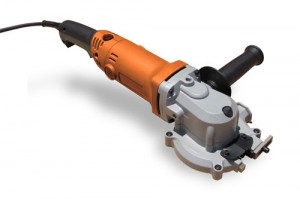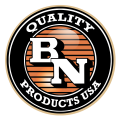(Note: The original version of this article was published in 2013. The article was revised in November, 2020 to remain current with contemporary practices and commonly-used equipment.)
Unlike wood and metal, which are materials that are more or less forgiving when it comes to making clean, accurate cuts, working with concrete is a totally different story. One can easily tell the difference between a quality project and an inferior cut job, and concrete contractors know that cracks, bug holes and the honeycombing effect are to be avoided at all costs. Not only does such imperfect work reflect poorly on the builder, but it can also pose potential safety concerns. While a little bit of surface damage is acceptable in most cases, the consequences of using too much water or not vibrating the concrete prior to cutting may lead to structural issues down the line.
Since the vast majority of these structures are load bearing and designed to withstand tremendous amounts of pressure (skyscrapers, bridges, roads, etc.), there really is no room for error. With requisite experience comes having the right tools. To avoid compromising the structure and to ensure the project is completed successfully, there are a handful of tools that every contractor should have on-hand. It is worth noting that this equipment is a must-have for a wide range of concrete applications, including flat work jobs such as sidewalks, driveways and patio floors. The hardest part about working with concrete on such jobs is making sure the lines are even and the surface is smooth and free from defects.
Concrete tools you can’t go without:
- Paddle Mixers: there is simply no other way to quickly and effectively mix batches of concrete than with a paddle mixer. These devices have a lot of torque and are made to blend upwards of 80 pounds of material. For ease of use and efficiency, most models feature a forward/reverse switch, allowing the user to seamlessly change the flow of the mix. The curing time for concrete does not favor manual mixing (if it is even possible) which is yet another reason why investing in a paddle mixer is highly recommended. The BNR6169 Paddle Mixer boasts 1050 watts and is equipped with an adjustable/removal side handle.
- Concrete Vibrators: before concrete can be cured, one has to ensure it is free of air pockets and that it is flush with the surface. It is not uncommon for the material to trap 20% of air, which, if not released, can be devastating to the internal integrity. A concrete vibrator is a tool with one simple purpose, and that is to get rid of air bubbles. It does this by emitting numerous impulses (mini shock waves) into the material, which in effect cause sand, water and concrete to consolidate. The blending process forces trapped air out and helps spread the material evenly.

- Concrete saws: unless intentionally planning on a hack job, one needs to have a concrete saw with a dedicated, namely diamond, blade to ensure clean cuts. Precision is the key, regardless if one is using a cut-through saw or an edging model. The BNCE-20 Cutting Edge Saw is ideal for making clean cuts and for trimming off excess material. The main benefit of using a portable saw like this one as opposed to a fixed model is that you can have access to hard to reach areas.


